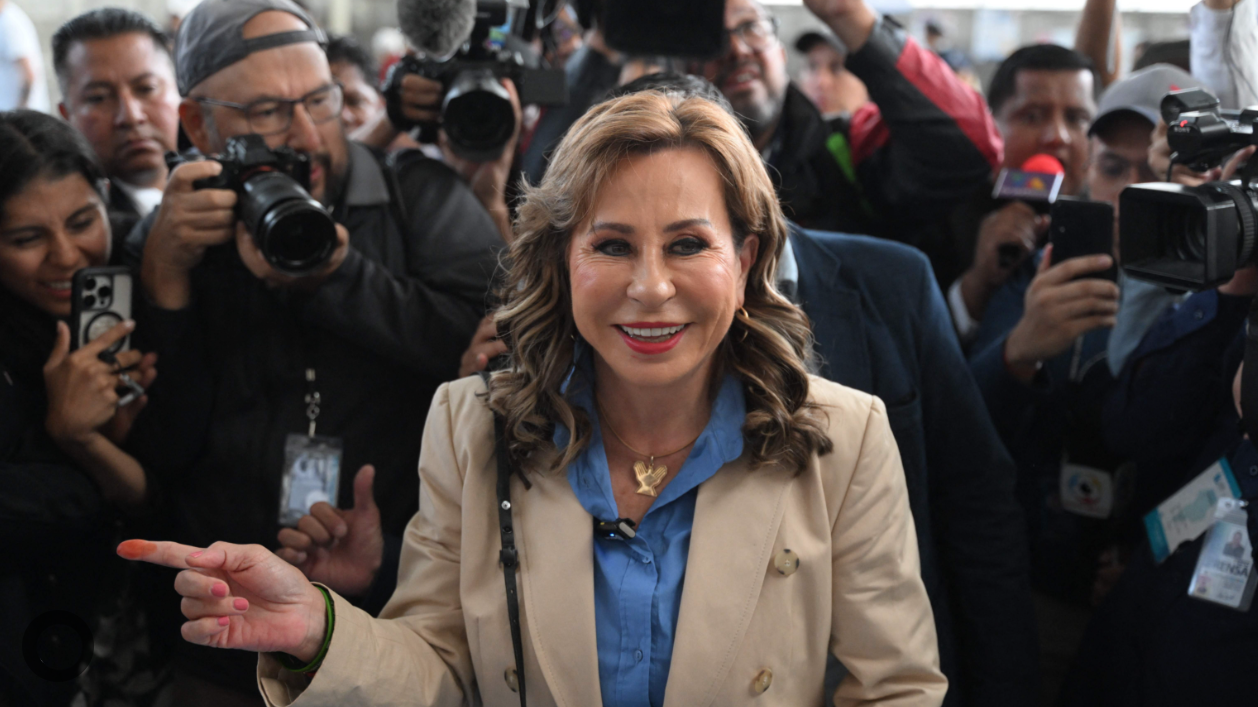The results — provisional for the moment — of the recent general elections in Guatemala were unusual if it were not precisely Guatemala. This beautiful Central American country has been dragging one crisis after another, not only economic but fundamentally social and political. This is due, in part, to the fact that in recent times all governments have represented, to a greater or lesser extent, the interests of a privileged class of businesspeople and corrupt politicians. This sector has ravaged state resources and subjugated Guatemalans through the systematic violation of their human and economic rights.
Blockades and persecutions
During the pre-election process, this sector was responsible for blocking all options that could put at risk the existing system of corruption and impunity in the country. The Electoral Tribunal, for example, denied registration to participate in the presidential elections to candidates critical of the Government, among them the well-known aboriginal leader Thelma Cabrera, of the Movement for the Liberation of the Peoples (MLP).
In addition, threats and actions against journalists and opposition leaders have not ceased, as in the case of journalist José Rubén Zamora, founder of the newspaper El Periódico and who was a strong critic of President Alejandro Giammattei’s government. In his newspaper, the journalist exposed important cases of corruption in national politics, involving high-level officials and businessmen.
Zamora was recently sentenced by a court to six years of “non-commutable” imprisonment for money laundering. And the fact is that the persecution of common crimes of referents such as Zamora, avoiding relating them to political issues, has been the preferred strategy by the circles of power.
But the figures of the recent election clearly describe the situation of the country: a high rate of abstention and null votes with two “winners” that barely together have around 30% of the votes. Unusual, but quite a political statement from the citizenry.
The former first lady Sandra Torres, candidate for the National Unity of Hope (UNE) and who obtained 15% of the votes, and Bernardo Arévalo de León, of the Seed Movement, who reached 12%, will dispute the runoff on August 20. Arévalo’s second place, very low according to previous polls, is explained by different factors ranging from the exclusion of anti-system candidates to the disenchantment generated by some alliances before the elections. As a reflection of the disinterest and, above all, the distrust in the electoral process, there was a high number of null votes (17.41%), four times more than in 2019, and blank votes (6.98%).
One of the problems of Guatemalan politics is the absence of strong parties. The political system is composed of a handful of small groups that present themselves under new slogans at each election, which confuses the electorate.
The banned opposition
The outlawed indigenous leader Thelma Cabrera Pérez de Sánchez, a national referent of CODECA (Peasant Development Committees), of Mayan Mam descent, was a presidential candidate in 2019 for the party Movement for the Liberation of the Peoples (MLP), obtaining an outstanding fourth place with 10.3% of the votes.
For these elections, the “system” glimpsed in her an unacceptable risk, for which, with different excuses, both she and her vice-presidential candidate, former Human Rights attorney Jordán Rodas, were disallowed as candidates. Thus, the MLP, which has a militancy in agreement with CODECA, could not even obtain one representative, nor did it reach 5% of the votes cast, which would eliminate it from the official registry as a political party, according to the electoral law.
The Article 93 of the current Electoral Law states that if a political party does not reach 5% of the valid votes cast in a presidential election or if it does not obtain at least one deputy to Congress, it must be canceled as such. Therefore, after the recent elections, twelve political parties are on the way to their disappearance, five of which are represented in the current legislature. The others were born for this year’s elections, but it is evident that their proposal did not convince a sufficient number of voters.
In addition to the case of the MLP, the historic National Advancement Party (PAN), created in 1989 and which made the late Álvaro Arzú president of the republic, will also disappear as it did not have a candidate for the presidency, nor did it obtain a single representative.
Other political parties that will receive the last rites are the National Convergence Front (FCN – Nación), the Guatemalan Popular Party, Podemos and the Humanist Party of Guatemala, and Citizen Prosperity(PC), as well as five other political parties that were created for the recent electoral process: My Family, Republican Union, Republican Party, Power and the National Integrity Party (PIN).
US-Guatemalan analyst and researcher Matthew Creelman has described the Guatemalan situation in a few words: “the dog wags the tail, but when things are upside-down, it is said that ‘the tail wags the dog’. Elections, instead of taking the pulse of people, become events that seek to convince, buy and incentivize wills”. This is what has been happening in Guatemala for quite some time.
*Translated from Spanish by Janaína Ruviaro da Silva












